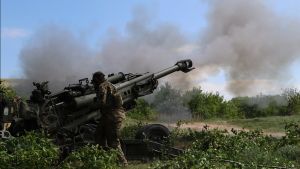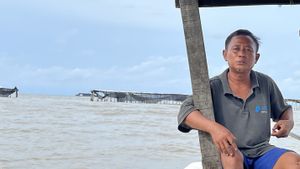JAKARTA - A massive exodus to developed countries is predicted to occur in 2050. Recent research from the Institute for Economics and Peace (IEP) mentions a number of things that will trigger the human movement, ranging from uncontrolled population growth, natural disasters, to lack of access. to water and food.
The IEP believes that the estimate is believed by the IEP because of the reality of the increasing world population. It is recorded that the world's total population will reach ten billion by 2050.
Therefore, the struggle for resources that triggers conflict is unavoidable. This is because the research shows a conflict could lead to 1.2 billion people living in vulnerable areas, such as Africa, Central Asia and the Middle East, who may be forced to flee by 2050.
The facts above are not just empty words. In 2019, for example. That year there were displacement of around 30 million people due to ecological factors and conflict, where many refugees came from developing countries.
"This will have huge social and political implications, not only in developing countries, but also in developed countries because mass displacement will lead to a greater flow of refugees to the most developed countries," said IEP founder Steve Killelea.
Killelea added that the world today has only 60 percent less clean water than it did 50 years ago. Meanwhile, demand for food is expected to increase by 50 percent in the next 30 years, driven largely by an expanding middle class in Asia.
However, the IEP falls into two broad categories. First, threats due to food insecurity, water scarcity and population growth. Second, threats originating from natural disasters include floods, droughts, hurricanes, and rising sea levels.
The most threatened countryThe IEP also named the countries most threatened by water scarcity in the coming decades, including India and China. The rest will face severe ecological threats, such as Pakistan, Iran, Kenya and Madagascar, among others.
"These countries are broadly present but at high risk of ecological threats, which means they are at a higher risk of collapse in the future," the report said.
As is well known, IEP is a think tank that talks a lot about terrorism and world peace. Their research this time has helped a wide audience to see which countries are most at risk of being exposed to ecological threats.
The English, Chinese, Japanese, Arabic, and French versions are automatically generated by the AI. So there may still be inaccuracies in translating, please always see Indonesian as our main language. (system supported by DigitalSiber.id)












